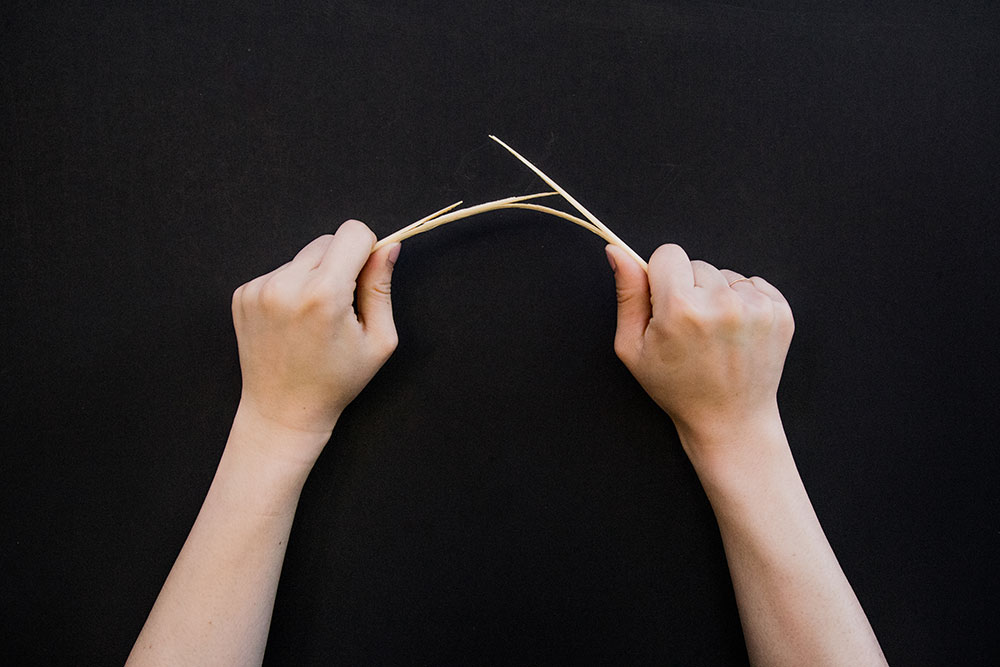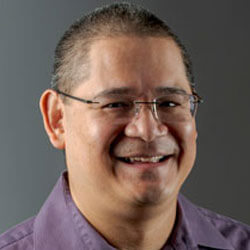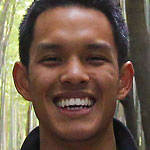
I am a Vietnamese adoptee, an orphan of war. As the story goes, I was born on March 22, 1975, a date based on my health and physical appearance on the day I was adopted, which was on May 8, 1975. I was, reportedly, at an orphanage called An Lac in Saigon, Vietnam. I was evacuated at 3 weeks of age by Betty Tisdale, “the Angel of Saigon”, who evacuated 219 orphans from An Lac.
Sometimes the story claims I was dropped off by an older sister. Other versions say I was never at the orphanage but rather handed over on the tarmac in the chaos before the C-130 Hercules filled with orphaned children took off toward Manila Air Force Base. Only God knows my story.
In some ways, my story exemplifies the classic adoption fairytale narrative of how America “saved” me from certain death. In other ways, that version of my story covers over my burdens and losses, confining me into a singular narrative.
I experience what I call a “narrative burden”, or that my story is both the source of my identity and a source of emptiness. My racial features compel others to ask, “Where are you really from?” or ignorantly try to compliment me, “You’re so lucky you were adopted!” The burden is that my narrative is the source of who I am and yet also a reminder of what I am not and do not have. I’m in between a complete story and a story that will never be fully known.
Narrative Loss
As an Asian raised by white parents in small towns and non-diverse communities, my teachers, role models, and mentors were white. And while I always knew I was racially distinct, my white parents didn’t know how to help me deal with racism. So, I grew up trying to be white, to shirk off the racism (“Hey, gook!”; “You’re Asian; you’re not supposed to major in business!”).
My father is white, loves sports, competitive, vocal, an alpha male, and status oriented. He can only respect me if I’m more like him, but he raised me to be seen and not heard, to not interrupt, to listen, to defer. Only lately have I recognized the irony; my race impacted how he raised me — to be Asian, yet never able to live up to his whiteness.
I can never be white, like my father, my mother, or the small town I grew up in. From an outside perspective, this is obvious, but as an Asian adoptee, the realization that all you grew up with and the role models you aspired to are out of reach because of skin color and birth country is a difficult loss. I live in between the role models I want to be and the realization I can never be what I envisioned growing up.
Country and Culture
I have traveled to Vietnam twice. And when I’m there, it feels good. I’m a little taller than most, but I don’t have to wonder if my hair color or the shape of my eyes or the flatness of my nose is strange. I don’t worry if my affable nature or quiet approach is out of place. I don’t have to explain why I like pho or fish sauce.
At the same time, I don’t belong. My stomach is plumper, the product of too much fast food. I wear western shirts and shoes. When they ask me if I speak Vietnamese and I tell them, “No, I’m adopted,” they laugh and giggle. It’s because they are masking jealously and uncertainty, but I feel excluded and out of place. Mostly one of them, but not quite.
In the United States, I am reminded I don’t belong either. I’m reminded that adoption is second class (“Are those your real parents?”), that I should feel fortunate and saved by America (“You were chosen!”), and that adoption is the solution to third world problems (“I’m sure you’re grateful to live in America!”).
I live in between countries, in between cultures, semi-comfortable in each but never fully at home in either.

Not Black or White
I recently stood in line for concessions at the local high school football game and was cut in front of by two white men. When I called them on it, they said to me, “We didn’t see you” without apology. I have been followed in stores by staff who think I’m going to steal something, and I’ve been called racial slurs. Yet when I try to express to my Black friends that I experience racism, I am told I’m not “dark” enough to experience “real” racism. I’m not trying to take away their experiences or equivocate my own; I’m trying to show solidarity and unity.
But even now, north of 40, when I am with my father, who lives in a small town, I’m asked if I’m really his son. My father just laughs at it, like an odd curiosity. I am too used to this behavior, and yet it reminds me of how I don’t belong.
Like many Asians, I feel in between Black and white, not “dark” enough for my racialized experiences to count, but too dark to pass for white or even as a member of my family.
Adult and Child
I’m married to a white woman. Because she grew up with four adopted Korean siblings, she strives to understand my experience, and I’m very blessed to have her. We have two biological children, biracial teenage daughters who navigate the burdens of a complicated family tree, their own racial identity, and the challenges of a father coming to terms with living in between. We also adopted a boy from Vietnam six years ago.
My son is nothing like me, and that is good. Adoptees are not all the same, and we resent implications that we are. Unlike me, he remembers his orphanage, wasn’t orphaned during a war, has sisters who reflect his skin and hair color, embraces being adopted and having been born in Vietnam. And I’m his father, another Vietnamese adoptee he can model after, a narrative he can aspire to.
I’m also a professor at a major U.S. university in Southern California. I own a house, have three cats, drive a minivan, lived in Canada, and spent a year teaching in China. In American eyes, I’m successful.
But the very label “adoptee” hearkens images of children being rescued. I am already an adult, and yet no matter how many “adult” things I accomplish, being an Asian adoptee means I will never be fully seen as an adult. I live in between adult and child.
Already, but not Yet
In Mark 1:15, Jesus proclaims the Kingdom of God is near. He pronounces hope, healing, rest, and peace. Of course, as Christians, the challenge is that some of this is not yet fully realized. Rather, the Kingdom of God is “Already, but not Yet.” It is Already because we are freed from legalism, ritual, and sacrifice; love has come in the form of Christ, love that offers freedom but asks responsibility and character.
But the Kingdom is not Yet; we have not yet realized the full promise and potential of when paradise will reign. We still feel the effects of a fallen world, still suffer, and still have freedom to harm others and ourselves.
Already, but not Yet is an in between. We are offered love with the responsibility of freedom; we experience suffering alongside hope; we live in daily tension with interruptions of peace. We are not yet home, but are striving for it.
I feel mostly comfortable in my church because I grew up in a white world and am familiar with the language, customs, and rituals. But I’m not 100 percent comfortable. I still feel on the outside, my life hued by my in-betweenness. In between cultures, in between countries, in between families that will never be and families that will be, in between incomplete narratives and narratives wanting to be written, in between adult and child, in between black and white. In between the Already, but not Yet.
As a Vietnamese adoptee, I live daily in the tension of the Already, but not Yet, having had hope and love demonstrated to me in being adopted, but never feeling settled in my own skin, family, or home, always longing for and clinging tightly to the promise of peace.
The Kingdom of God is near! Near, so close I can almost grasp it, but each time I reach for it, it eludes me. Still, I hold tightly to the hope and faith that we will one day see God’s Kingdom fully realized, that I will no longer live in between, but finally be home.

Robert (Bert) Ballard, Ph.D., is a Vietnamese adoptee evacuated during Operation Babylift in 1975. He is an associate professor at Pepperdine University in communication where he uses narrative to study adoptee identity. He has published two books and is an internationally sought out speaker on inter-country adoption. He attends Conejo Valley Church of Christ and also has a video on Buzzfeed playing Detroit Become Human (just Google it!).
